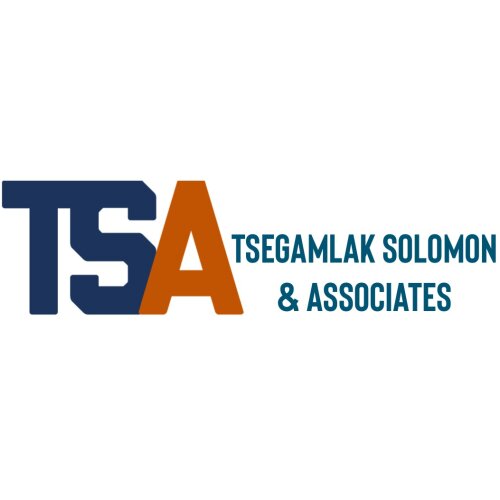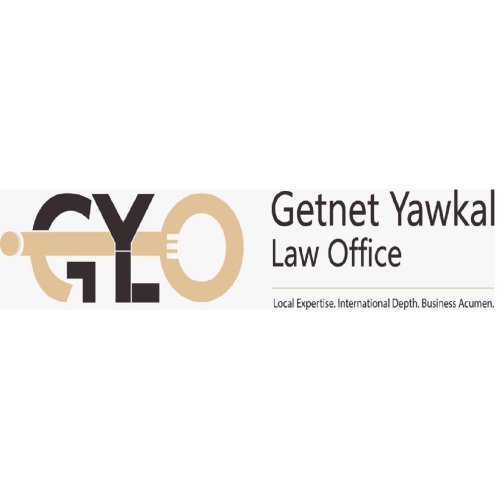Best Banking & Finance Lawyers in Addis Ababa
Share your needs with us, get contacted by law firms.
Free. Takes 2 min.
List of the best lawyers in Addis Ababa, Ethiopia
About Banking & Finance Law in Addis Ababa, Ethiopia
Addis Ababa, the capital city of Ethiopia, serves as the central hub for the country's financial and banking activities. The banking sector is integral to Ethiopia's development efforts, providing essential services for trade, investments, and economic growth. Banking & Finance Law in Addis Ababa encompasses the governance of financial institutions, regulation of monetary activities, and ensures transparency and accountability. With an evolving financial market, the legal framework in this sector aims to foster stability, protect consumers, and promote ethical banking practices.
Why You May Need a Lawyer
Engaging with Banking & Finance law often requires specialized legal expertise due to the complexity and significance of financial transactions. Here are some common situations where legal help may be necessary:
- Disputes related to loan agreements and contract enforcement.
- Compliance issues with banking regulations and anti-money laundering laws.
- Establishing and operating financial institutions, including obtaining necessary licenses and permits.
- Handling restructuring and insolvency proceedings.
- Assistance with mergers, acquisitions, and corporate finance activities.
- Resolving issues related to financial fraud and embezzlement.
Local Laws Overview
Several key legal frameworks govern the banking and finance sector in Addis Ababa. These include:
- The National Bank of Ethiopia (NBE) Regulations: The NBE serves as the central regulatory body, establishing rules for financial institutions, interest rates, and foreign exchange operations.
- Bankruptcy and Insolvency Law: Provides procedures for winding up insolvent companies and protecting creditor rights.
- Commercial Code of Ethiopia: Governs commercial transactions, securities, and negotiable instruments crucial for banking operations.
- Consumer Protection Law: Ensures fairness and transparency in banking services and protects consumer rights.
Frequently Asked Questions
What types of financial institutions operate in Addis Ababa?
The financial institutions in Addis Ababa include commercial banks, microfinance institutions, insurance companies, and credit unions. Each type serves different market needs and operates under specific regulations set by the National Bank of Ethiopia.
How are interest rates determined for loans and deposits?
Interest rates in Ethiopia are primarily determined by the National Bank of Ethiopia. These rates aim to balance economic growth, control inflation, and provide reasonable returns for investors and lenders.
What are the steps to set up a commercial bank in Addis Ababa?
Establishing a commercial bank involves obtaining a banking license from the National Bank of Ethiopia, fulfilling capital requirements, drafting articles of association, and adhering to specific compliance and operational guidelines.
What should I do if I'm a victim of financial fraud?
If you suspect financial fraud, it's critical to report the incident to your bank immediately, file a report with the local police, and seek legal advice to protect your assets and understand your rights.
How does the Ethiopian government handle money laundering?
The government has established strict anti-money laundering regulations. Financial institutions are required to report unusual transactions, conduct customer due diligence, and maintain detailed records as per the directives of the National Bank of Ethiopia.
What legal measures are in place to protect depositors?
Depositor protection is enhanced through insurance schemes and regulatory safeguards that ensure banks maintain sufficient capital reserves and liquidity to fulfill depositor obligations.
Can foreigners open bank accounts in Addis Ababa?
Yes, foreigners can open bank accounts, subject to meeting specific identification and residency requirements as prescribed by financial institutions and complying with foreign exchange regulations.
What role does collateral play in securing loans?
Collateral is often required to secure loans, acting as a guarantee for the lender. In case of default, lenders may seize the collateral to recover their funds, as outlined in the loan agreement.
Are there specific laws for electronic banking?
Yes, there are specific regulations governing electronic banking, focusing on secure transactions, data protection, and preventing cyber fraud, in line with technological advancements and user safety.
How does one resolve disputes between a bank and a customer?
Disputes can often be resolved through the bank's customer service channels, mediation, or arbitration. For unresolved issues, legal proceedings may be initiated as per the banking contracts and applicable law.
Additional Resources
Several organizations and government bodies can provide assistance and information regarding Banking & Finance in Addis Ababa:
- National Bank of Ethiopia (NBE): The central regulator for banks and financial services.
- Addis Ababa Chamber of Commerce: Offers resources for businesses and financial institutions.
- Ministry of Finance: Provides policy guidance and information on fiscal policies.
- Ethiopian Bar Association: A resource for finding qualified legal professionals in banking and finance law.
Next Steps
If you need legal assistance in Banking & Finance, consider the following steps:
- Identify the specific area of Banking & Finance where you need assistance, such as compliance, contracts, or transactions.
- Research and consult with legal professionals or law firms specializing in Banking & Finance law in Addis Ababa.
- Prepare all necessary documentation and background information related to your case or inquiry.
- Schedule consultations to understand potential legal strategies and the costs involved.
- Engage a lawyer who you feel comfortable with and who demonstrates expertise in your specific legal needs.
Lawzana helps you find the best lawyers and law firms in Addis Ababa through a curated and pre-screened list of qualified legal professionals. Our platform offers rankings and detailed profiles of attorneys and law firms, allowing you to compare based on practice areas, including Banking & Finance, experience, and client feedback.
Each profile includes a description of the firm's areas of practice, client reviews, team members and partners, year of establishment, spoken languages, office locations, contact information, social media presence, and any published articles or resources. Most firms on our platform speak English and are experienced in both local and international legal matters.
Get a quote from top-rated law firms in Addis Ababa, Ethiopia — quickly, securely, and without unnecessary hassle.
Disclaimer:
The information provided on this page is for general informational purposes only and does not constitute legal advice. While we strive to ensure the accuracy and relevance of the content, legal information may change over time, and interpretations of the law can vary. You should always consult with a qualified legal professional for advice specific to your situation.
We disclaim all liability for actions taken or not taken based on the content of this page. If you believe any information is incorrect or outdated, please contact us, and we will review and update it where appropriate.
Browse banking & finance law firms by service in Addis Ababa, Ethiopia
Addis Ababa, Ethiopia Attorneys in related practice areas.

















